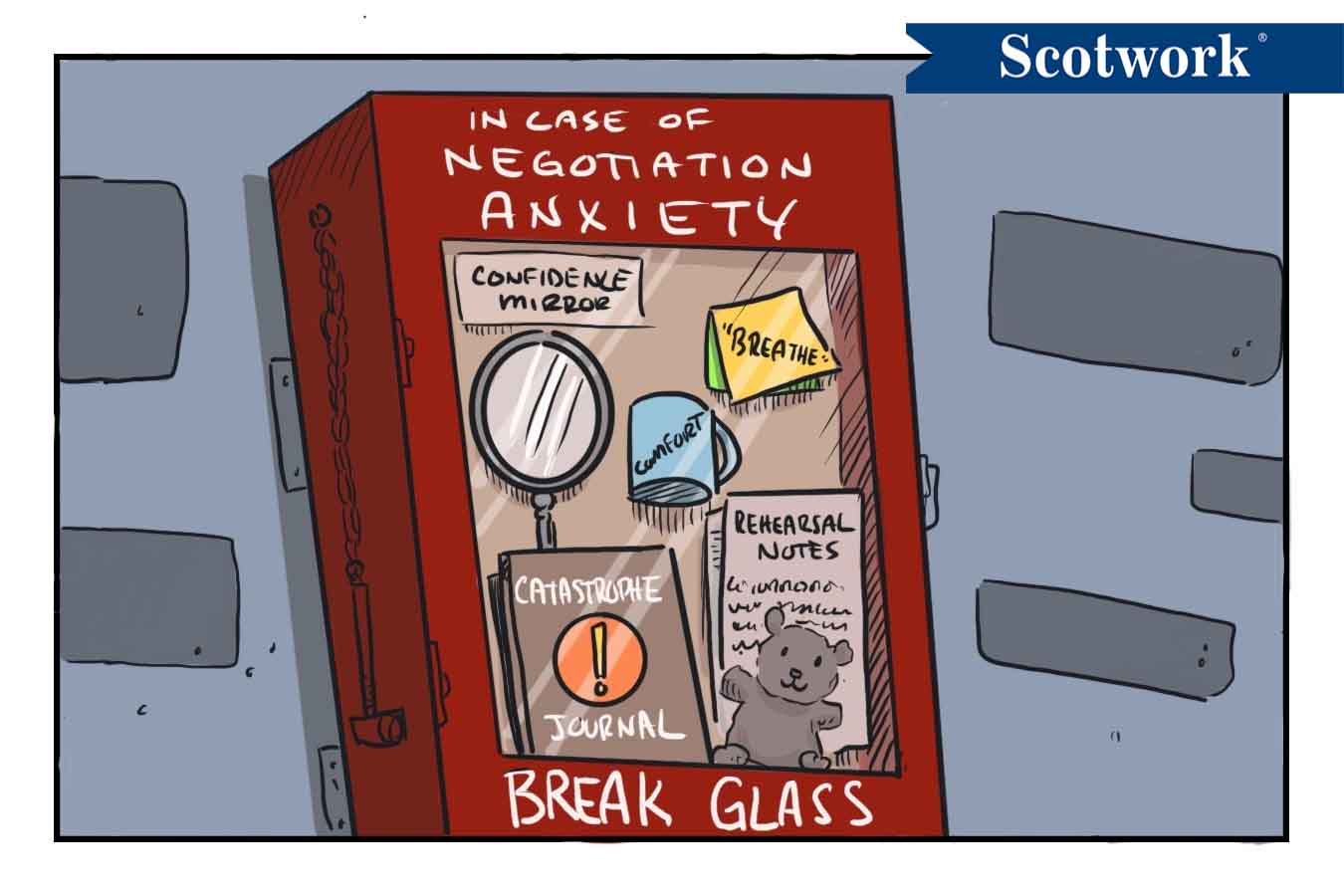Negotiation anxiety is real, and the results can be costly: giving in too easily, accepting lopsided deal terms, letting the other side control the process, or walking away from opportunities altogether. These outcomes can have lasting professional and personal consequences.
At its core, negotiation anxiety is rooted in conflict avoidance. It often begins when someone imagines the worst possible outcomes. In both our research and work with negotiators, common fears include:
- the other side getting angry
- jeopardizing a relationship or incurring backlash
- damaging one’s reputation
- failing to make a deal
- agreeing to a bad deal
It might be difficult for those who don’t suffer from negotiation anxiety to understand how debilitating it can be: the racing heart, the sleepless nights, and second-guessing even routine discussions.
But there’s good news: Anxiety doesn’t have to define your negotiation experience. With awareness, preparation, and mindful practice, you can retrain your brain to approach negotiation not with dread, but with confidence.
Reframe from Conflict to Opportunity
Yes, negotiation is a tool for resolving conflict, but it’s also an engine for collaboration and creativity. With practice, you can use it to build understanding, solve problems, and create mutual value. This reframing doesn’t eliminate all tension, but instead of focusing on what could go wrong, you begin to focus on what’s possible.
Keep a “Negotiation Catastrophe” Journal
When anxiety hits, your imagination can be your worst enemy. Write down exactly what you’re worried about and every worst-case scenario you can think of. After the negotiation, revisit the list and compare your fears to what actually happened. You’ll likely find that most of your imagined catastrophes never came true. Over time, this practice helps you challenge distorted thinking.
Prepare, Prepare, Prepare
As the adage goes, proper preparation prevents poor performance . . . and minimizes anxiety. Preparation builds confidence in your strategy, strengthens your arguments, and helps you anticipate the other side’s needs and tactics. Confidence and anxiety rarely coexist; the more of one you build, the less room there will be for the other.
Rehearse and Role-Play
Preparation doesn’t stop at research. Practice with a trusted partner. Anticipate objections and role-play worst-case scenarios. Practice your responses until they feel natural. When your brain has already “lived through” a tough moment in rehearsal, it’s far less intimidating if that moment comes to pass.
Take Your Time
Our instinct is to rush through discomfort. In negotiation, that can lead to missed opportunities and unplanned concessions. Slow down. Take breaks. Summarize often. Slowing the pace helps you think clearly and puts you back in control of both the timetable and your emotions.
Negotiation anxiety doesn’t mean you’re weak or unskilled; it means you care about the outcome. The goal isn’t to eliminate anxiety completely — that’s unrealistic.
Every negotiation is a chance to learn, grow, and build resilience. The more you prepare, practice, and reflect, the more comfortable you’ll become with discomfort. Eventually, what once felt like confrontation will feel like collaboration. That’s when you’ll know you’ve turned anxiety into your competitive advantage.
Negotiation Training and Consulting to Help You Turn Anxiety into Your Competitive Advantage.
Negotiation anxiety isn’t only real — it’s common. Rely on Scotwork’s 50 years of expertise to help you work through it on the way to your best deal.

